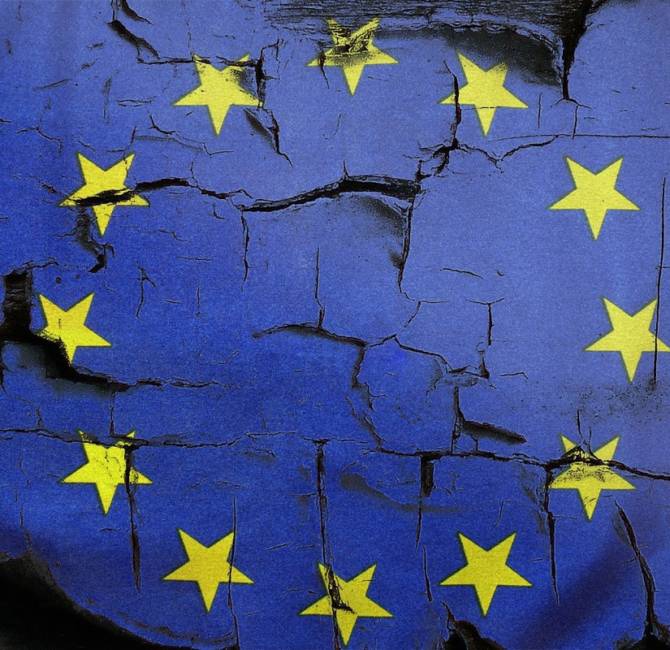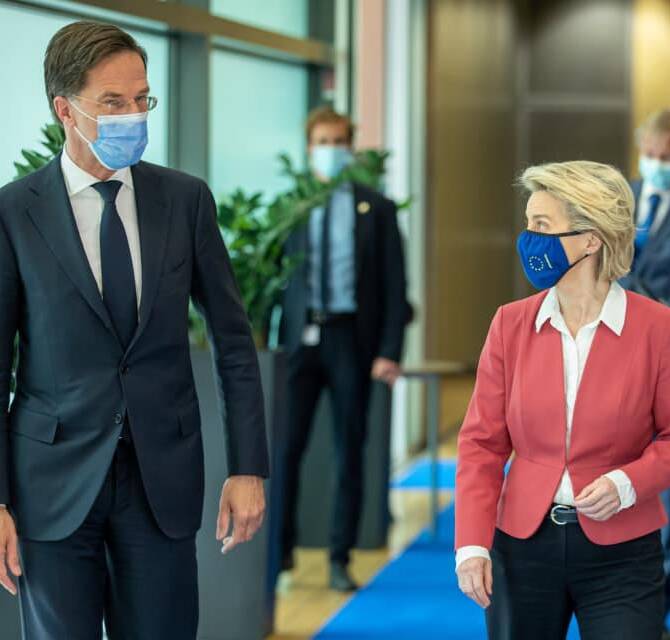This article has been published online by the Magyar Nemzet on April 18, 2021.
For now Fidesz is enjoying its independence.
Many political parties would like to cooperate with Fidesz, and we are delighted to form alliances with political communities that are ready to defend traditionally conservative values – Katalin Novák told Magyar Nemzet. The Minister of State for Family and Youth Affairs and the vice-president of Fidesz responsible for foreign affairs, thinks the European Union should be reformed from within. She called Zsolt Petry’s termination outrageous, but she also believes rule of law is still in force in Germany.
Gergely Gulyás said at the Government Info briefing two weeks ago that Fidesz will be spoiled for choice because every right-wing political family wants them as a member. What formation will they join eventually?
For now, we are enjoying our increased leeway and freedom which also means more independence. Indeed, there are many parties that want to cooperate with Fidesz in the future. I personally receive a lot of feedback from our friends within the EPP who regret that we don’t belong to the same party family anymore, but they trust that our good relationship will remain.
What do you think: is there a chance that other parties will follow Fidesz and leave the EPP?
The People’s Party has not been cohesive for a long time. Many aren’t happy to see the left-leaning approach, there are parties who did not become leftist, and Fidesz, as the strongest party, leaving the group, makes their situation harder. Their voters don’t really understand why they are not in the same political group as Viktor Orbán, who keeps immigrants away from his country, stands for traditional Christian-Democrat values, and is even more successful in procuring vaccines than others. I believe there is a big chance that there will be other parties who will formally depart from the EPP in the future. And it is certain that there are many parties in our former group that would continue to cooperate with us.
After the Orbán–Morawiecki–Salvini summit, the participants highlighted that the European right must be reformed. What is this new right going to look like?
A kind that says “yes” to freedom, human dignity, family, nation, and Christianity. On the other hand, says a firm “no” to migration, imperial logic, communism, antisemitism, and censorship. The new-right doesn’t dance around the subject, doesn’t speak the Brussels made-up language, and works on problems that really interest people. It will seek the answer to how Europe can become more innovative while preserving its traditions, rich culture, and heritage.
The media was interested in a particular topic after the Hungarian-Polish-Hungarian summit: Matteo Salvini would distribute the migrants already in Italy between member states. Is this problematic?
Our political opponents tried to divide us from the very first moment. That salami-slicing approach was used to weaken the V4 and now they use it against the People’s Party. They are trying to drive a wedge between us, saying: the Polish PiS and the Northern League have a sharp contrast regarding Russia. Donald Tusk immediately brought up Vladimir Putin in connection with the meeting to the Polish public. Poland has a different historical and security policy situation than the Italians or we Hungarians. We respect and we don’t interfere with each other’s interests. The same is true of the migration you mentioned. It would be surprising to accuse Matteo Salvini of being in favor of immigration. He had been going to court for years to stop migrant ships as interior minister. It is true, however, that Italy, due to its geographic location, cannot take exactly the same position as the Poles and we Hungarians. However, our belief that the future lies in supporting families is a strong common value.
Fidesz, PiS and the Northern League have 67 seats in the European Parliament (EP) which doesn’t seem like a lot. What can this be enough for?
We intentionally don’t want to get into the numbers. We of course know the numbers in the EP. The only situation where this matters is when we have to vote. It will be a significant freedom for our MEPs in the future to be able to vote on important decisions not according to what the faction discipline demands. Considering how many people have values similar to ours, it will turn out that there is a formidable right-wing force on the horizon.
Matteo Salvini told Mandiner: “If the European People’s Party, the European Conservatives and Reformists (ECR), the Identity and Democracy and other groups come together, we will be the majority.” So now after all, Fidesz is counting on the EPP?
There are many speculations as to what would happen if the ECR and ID groups joined forces. It’s hard to predict the potential role of the EPP. We do not know for example, what the situation will be after the German elections; so far, it is quite unclear as to whether CDU/CSU will get themselves together, fearing that they may be left out of the governing coalition. The question is if there will be another that recognizes that it’s not worth it for center-right parties to look for allies on the left while sacrificing values and principles for the sake of the other side’s expectation. This is what we saw in Spain in the case of Partido Popular and this is what is happening in France with the Republicans. At some point in the future, the EPP may also realize that they should not look for allies from the left; however for now, no signs indicate this, and under the current leadership this type of pivot is practically out of the question. We are working together with political communities that are ready to stand up for traditional right-wing values.
Can the European Conservatives and Reformists and Identity and Democracy groups merge?
We are not at that point yet to discuss group structures. I believe though, that we can cross these borders, at least in part. During the Budapest meeting, the leading representatives of the ECR and ID were present. There is a right-wing coalition in the European Council that the ECR, ID, and even the British conservatives are a part of. Therefore, this kind of cooperation is not without a precedent.
AfD, as a German right-wing party definitely will not be considered as an ally? Why are they still aiming for the left-leaning CDU partnership?
For us, a good relationship with Germany at the intergovernmental level is important not only because of our traditions but also because of our mutual economic interests. There are lots of German companies in Hungary and their trade cooperation is active with us as well as the whole V4. Bavarian CSU president Markus Söder even stated after our departure from the EPP that our countries must preserve and maintain our relations nonetheless. That is why a good relationship with CDU is self-evident for us. At the AfD congress the other day, they announced they will leave the EU. We, on the other hand, are looking for partners who are willing to reform the EU from within. We see the need for change, but it is in our interest to improve from within the organization.
In Welt am Sonntag’s Sunday publication, the importance of a democratic right was emphasized throughout. Is the AfD not a democratic party?
This isn’t about the AfD. The democratic right literally means that for us, respect for democratic value is a fundamental element we cannot ignore. We would never declare which parties in the current EP are democratic and which are not. It is apparent from the Article 7 procedures against us what happens when others call for democratic standards arbitrarily, without a legal basis. Respect for democracy will therefore continue to be a basis for us in the future; this of course does not mean that we want to cooperate with every democratic right party, because there may be other aspects that prevent this.
Although you emphasized the importance of good relations with the Germans, in the seemingly trivial Petry case – which is practically the only case involving a Hungarian living abroad – they really took the gloves off. Why was this necessary?
The affair is not trivial at all. It can easily happen today, in Europe’s leading country, that someone is fired from their position, and their livelihood risked, because they expressed an opinion (mind you, in a completely tolerant way) that differs from the German mainstream. This can spark fear in people and force them to hide their views. There are times when some people assume that someone is disadvantaged by expressing their opinion. In Zsolt Petry’s case however, this is not a presumption as Hertha’s leadership proudly announced that this is exactly the reason. They did all this despite the fact that they acknowledged that the Hungarian coach is not a homophobe, but rather a tolerant person who is an outstanding professional as well; the only problem was, they didn’t agree with his statements. It is outrageous that an employer can do this in plain sight through the press in today’s Germany. And it is particularly angering that Minister of State Michael Roth, enthusiastically welcomed the club’s decision.
Gergely Gulyás said that in connection with the case, we must raise the question: is there still rule of law in Germany? Do you think so?
Yes. Please, explain this answer in a little more detail for us.
I could list a number of reasons as to why I think there is still rule of law in Germany, but in this case specifically – because there is a legal remedy. As far as I know, Zsolt Petry will take his case to court; he may receive compensation from the German legal system. I am confident that this will happen.
Let’s address another significant EU Member State, France. Would Fidesz be willing to partner with the National Rally party that is considered by many as a pariah?
In France, enormous crowds are expecting politicians to represent right-wing values. The Republicans party preserves the spirit of De Gaulle the most – a party that we have good relations with and root for their success – but they weakening and there is another right-wing party that has become incredibly popular. Like it or not, this is the reality of the situation. Thus, we have to look and see why Le Pen’s party has so much support, what they represent, and how. As I mentioned earlier, we want to change the EU from within.
As a female politician, what are your thoughts of Ursula von der Leyen being seated on a couch in Turkey? Doesn’t it reveal the alienation of the Brussels elite from reality that in the midst of an epidemic, they made this into such a big deal?
I think the fake outrage that was generated from this situation was over the top. Vaccine procurement and defense against the virus are significantly more important questions at the moment than these protocol issues. I will note however: if such an awkward situation arises, regardless of institution or protocol, Charles Michel should have offered up his seat for Von der Leyen like a gentleman. And she could have decided whether to accept the gesture.
Imre Csekő




